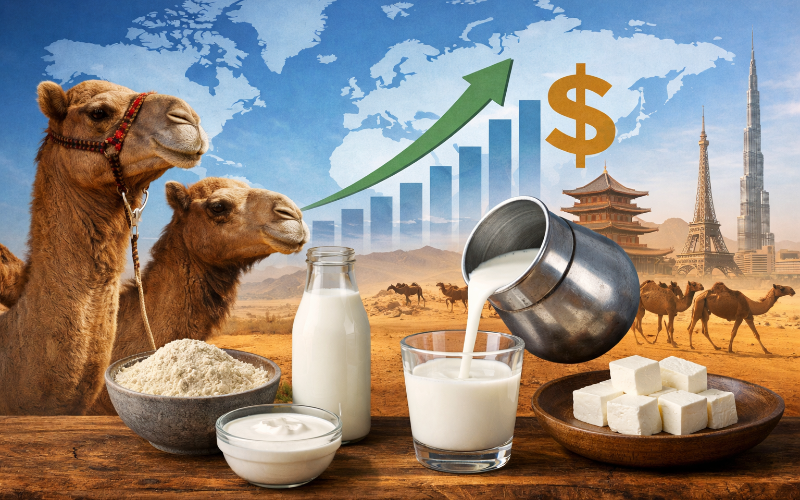South Africa Secures Key Agreements for Dairy and Wool Exports to China
South Africa has achieved a significant breakthrough in expanding agricultural trade with China following the signing of key market access agreements during the Forum on China–Africa Cooperation (FOCAC).

Agriculture Minister John Steenhuisen announced the signing of three critical agreements with China on Monday, which include a Memorandum of Understanding (MoU) on foot-and-mouth disease (FMD) and protocols for the export of greasy wool and dairy products.
The Dairy Protocol will open the Chinese market to South African dairy products, while the Greasy Wool Protocol ensures the continued trade of wool between the two nations, following an agreed treatment process. Additionally, the MoU on FMD marks a pivotal development in beef trade, as China will now accept the compartmentalization of South African beef imports. Under this agreement, only the affected province would face restrictions in the event of an FMD outbreak, rather than halting beef exports nationwide.
"This is just the beginning of opening up the Chinese market for South African products, with more exciting announcements to be made later in the year," said Steenhuisen.
The agreements were witnessed by both South African President Cyril Ramaphosa and Chinese President Xi Jinping, emphasizing the growing cooperation between the two nations.
Agricultural Business Chamber of SA (Agbiz) chief economist Wandile Sihlobo highlighted that China’s role as a dominant player in global agriculture presents significant opportunities for African nations. However, South Africa remains the only African country in China's Top 30 agricultural suppliers, accounting for just 0.4% of China’s $218 billion in agricultural imports in 2023. Despite this, South Africa has the potential to significantly increase its export footprint in China, particularly in sectors such as fruits, wine, nuts, and wool.
Sihlobo further emphasized that South Africa’s agricultural exports reached a record $13.2 billion in 2023, showcasing the country’s capacity to expand its agricultural trade with China. To fully leverage these opportunities, South Africa’s agricultural sector continues to advocate for the lowering of import tariffs and the removal of phytosanitary barriers.
While the FOCAC agreements represent a step forward, industry leaders call for continued engagement to further open the Chinese market to South African agricultural products and secure more favorable trading conditions.
The Dairy Protocol will open the Chinese market to South African dairy products, while the Greasy Wool Protocol ensures the continued trade of wool between the two nations, following an agreed treatment process. Additionally, the MoU on FMD marks a pivotal development in beef trade, as China will now accept the compartmentalization of South African beef imports. Under this agreement, only the affected province would face restrictions in the event of an FMD outbreak, rather than halting beef exports nationwide.
"This is just the beginning of opening up the Chinese market for South African products, with more exciting announcements to be made later in the year," said Steenhuisen.
The agreements were witnessed by both South African President Cyril Ramaphosa and Chinese President Xi Jinping, emphasizing the growing cooperation between the two nations.
Agricultural Business Chamber of SA (Agbiz) chief economist Wandile Sihlobo highlighted that China’s role as a dominant player in global agriculture presents significant opportunities for African nations. However, South Africa remains the only African country in China's Top 30 agricultural suppliers, accounting for just 0.4% of China’s $218 billion in agricultural imports in 2023. Despite this, South Africa has the potential to significantly increase its export footprint in China, particularly in sectors such as fruits, wine, nuts, and wool.
Sihlobo further emphasized that South Africa’s agricultural exports reached a record $13.2 billion in 2023, showcasing the country’s capacity to expand its agricultural trade with China. To fully leverage these opportunities, South Africa’s agricultural sector continues to advocate for the lowering of import tariffs and the removal of phytosanitary barriers.
While the FOCAC agreements represent a step forward, industry leaders call for continued engagement to further open the Chinese market to South African agricultural products and secure more favorable trading conditions.











